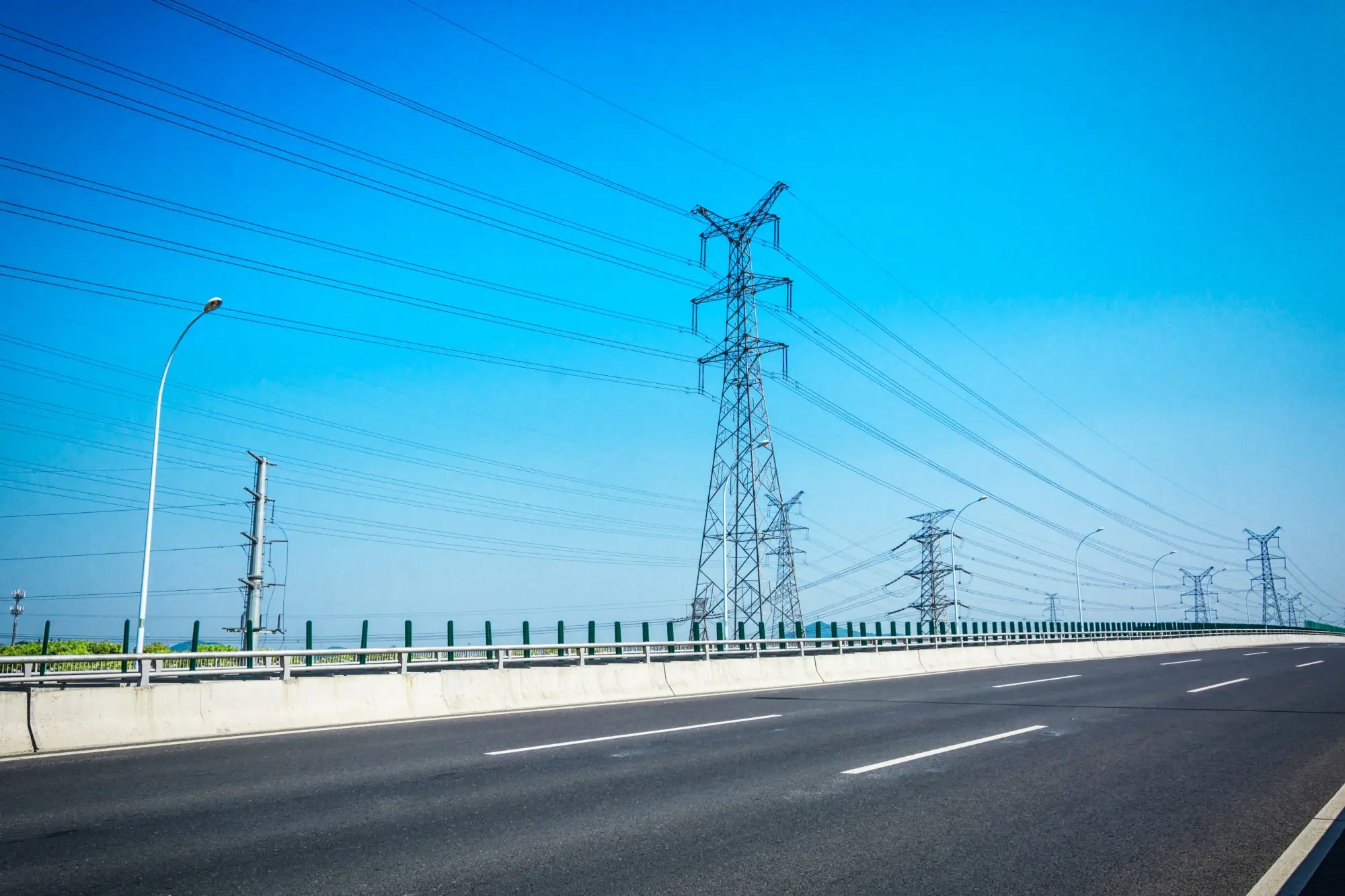Assessment of short-term and seasonal adequacy
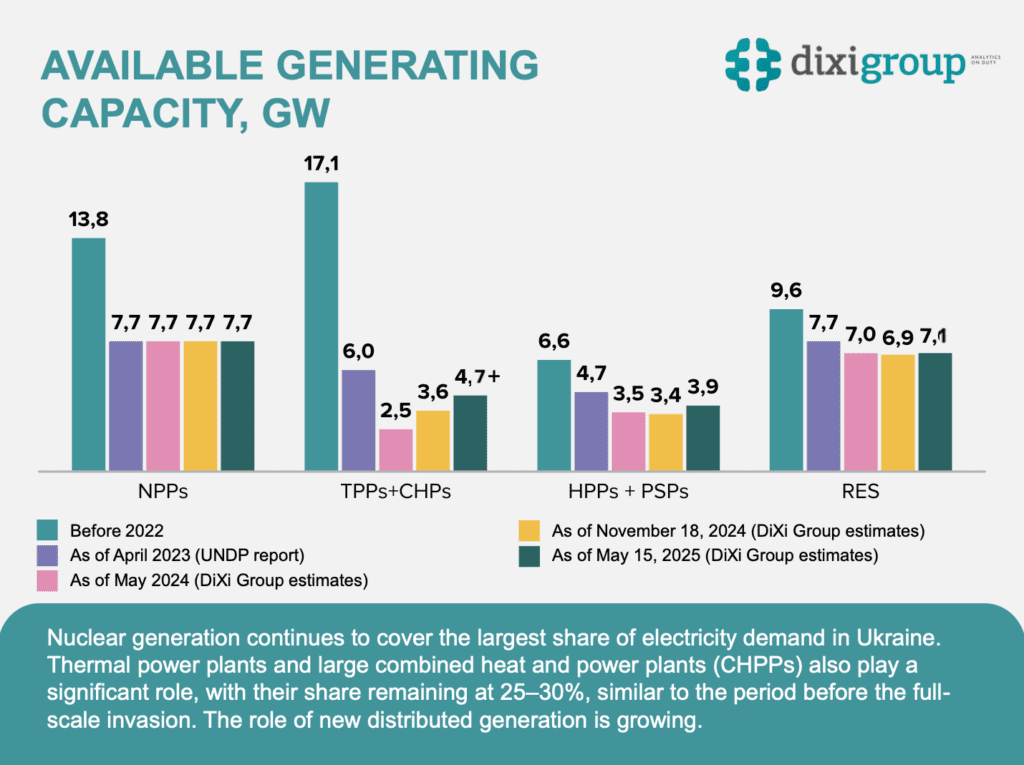
Since the start of the full-scale war, after February 24, 2022, a decrease in electricity consumption has been observed.
According to DiXi Group estimates, electricity consumption in 2024 decreased by 3-6% compared to 2023, and this trend is likely to continue throughout 2025, driven not only by ongoing hostilities in Ukraine but also by the accelerated development of local generation at the household and business levels.
OPTIMISTIC SCENARIO:
No new attacks on the power system, moderate temperature conditions
The temperature regime will play a significant role in the implementation of this scenario. Moderate temperatures will not only reduce peak consumption to below the winter maximum—estimated by DiXi Group at 16–16.5 GW—but will also create favorable pricing conditions for electricity imports (as there will be no surge in demand on neighboring markets either).
The risk of outages for balancing supply and demand will not exceed 5%, provided there is no new damage to generation or grid infrastructure.
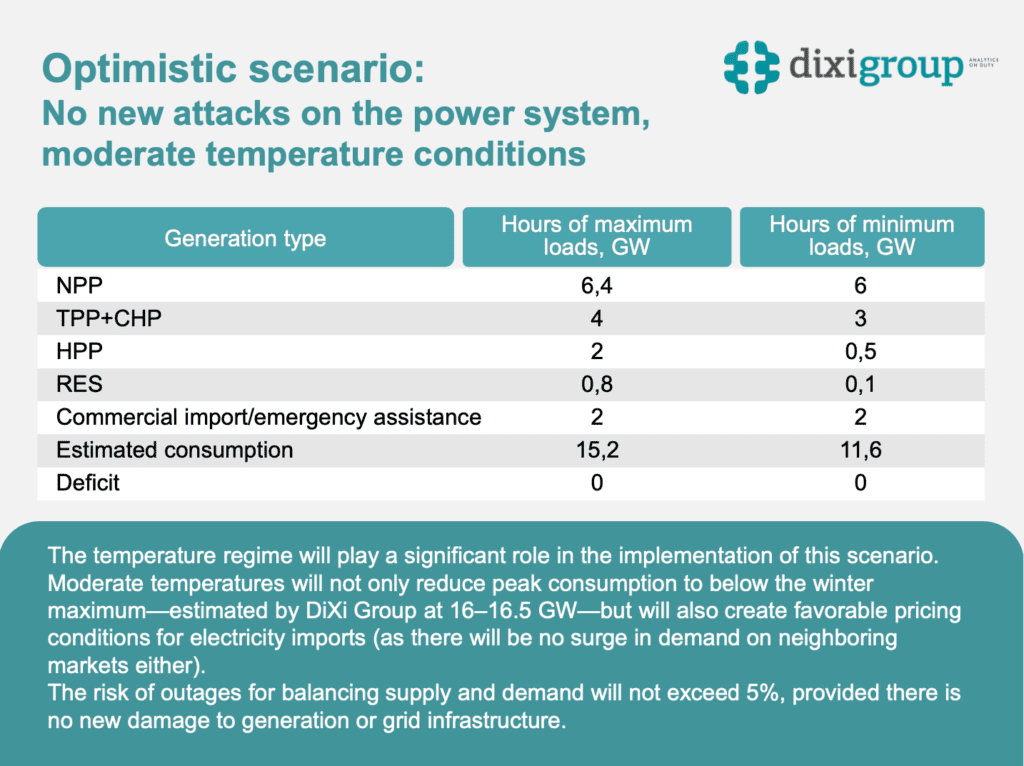
MEDIUM SCENARIO:
Absence of new attacks on the energy system, significant increase in electricity consumption due to rising average daily temperatures
A significant increase in average daily temperatures in the summer leads to a rise in maximum demand to levels comparable to winter peaks, which for the 2024/2025 heating season were expected to reach 18-18.5 GW. Despite the restoration of a significant portion of generating equipment, a potential electricity deficit of 10-15% remains possible, driven by a decline in imports due to rising prices on European markets and the withdrawal of some generating equipment for maintenance.
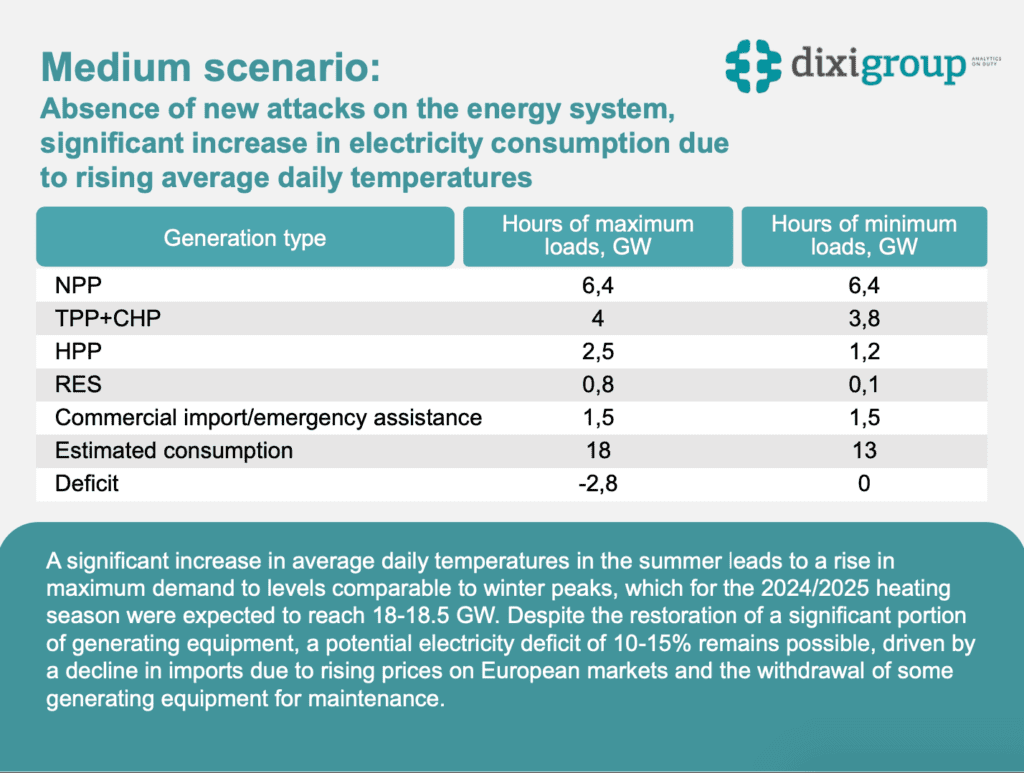


PESSIMISTIC SCENARIO:
Continued destruction of flexible generation capacity, moderate temperature regime
Further russian attacks on generating capacities will lead to an increase in the number of hours with a likelihood of generating capacity deficits and an increase in the potential deficit to 16-20%, the coverage of which will be complicated by insufficient hydropower resources and ongoing maintenance campaigns at nuclear and thermal power plants.
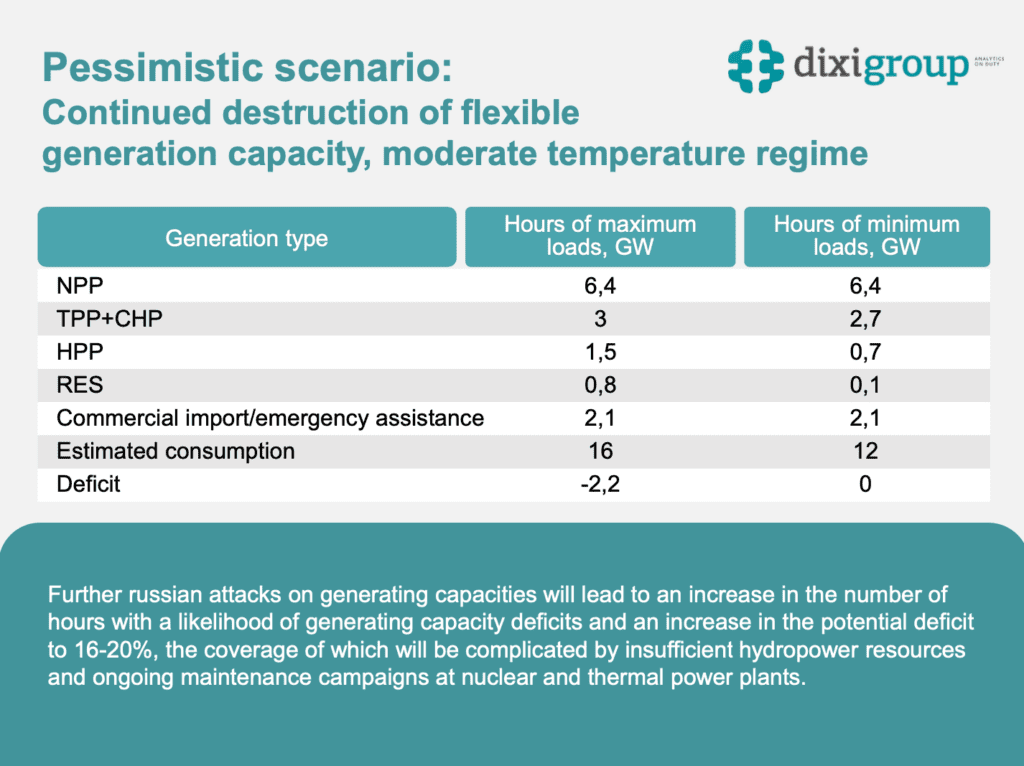


This material was prepared by DiXi Group NGO with the support of the International Renaissance Foundation within the framework of the project “Best Energy Security for Tomorrow”. The material reflects the position of the authors and does not necessarily reflect the position of the International Renaissance Foundation.
